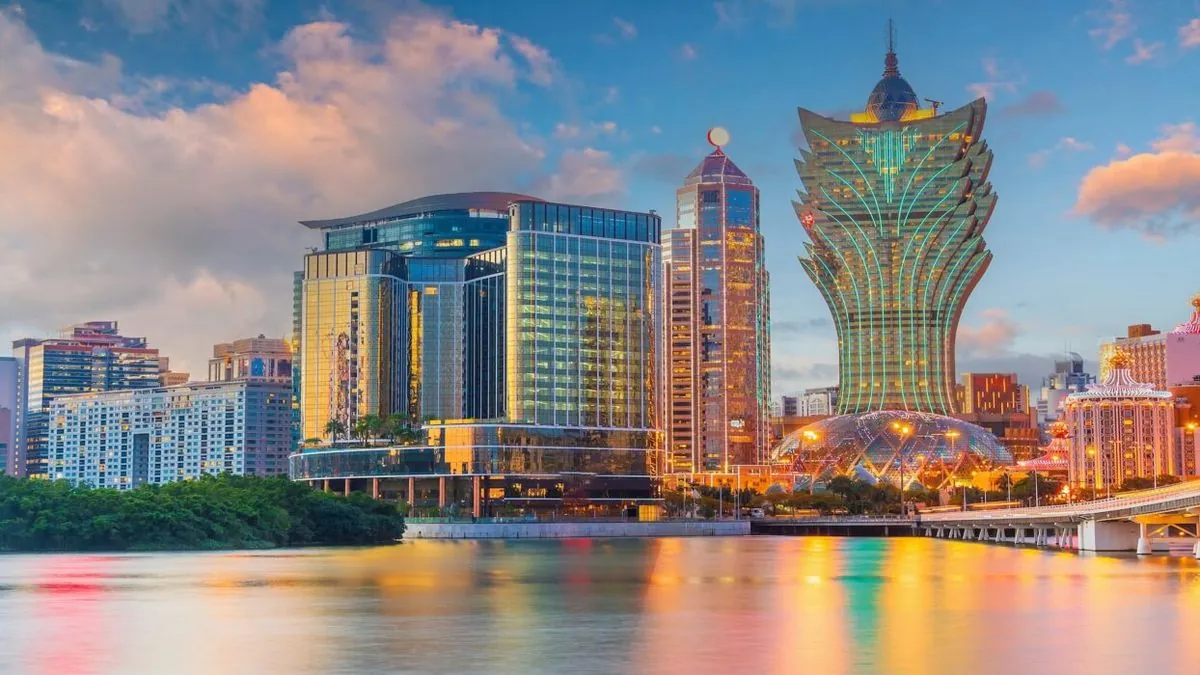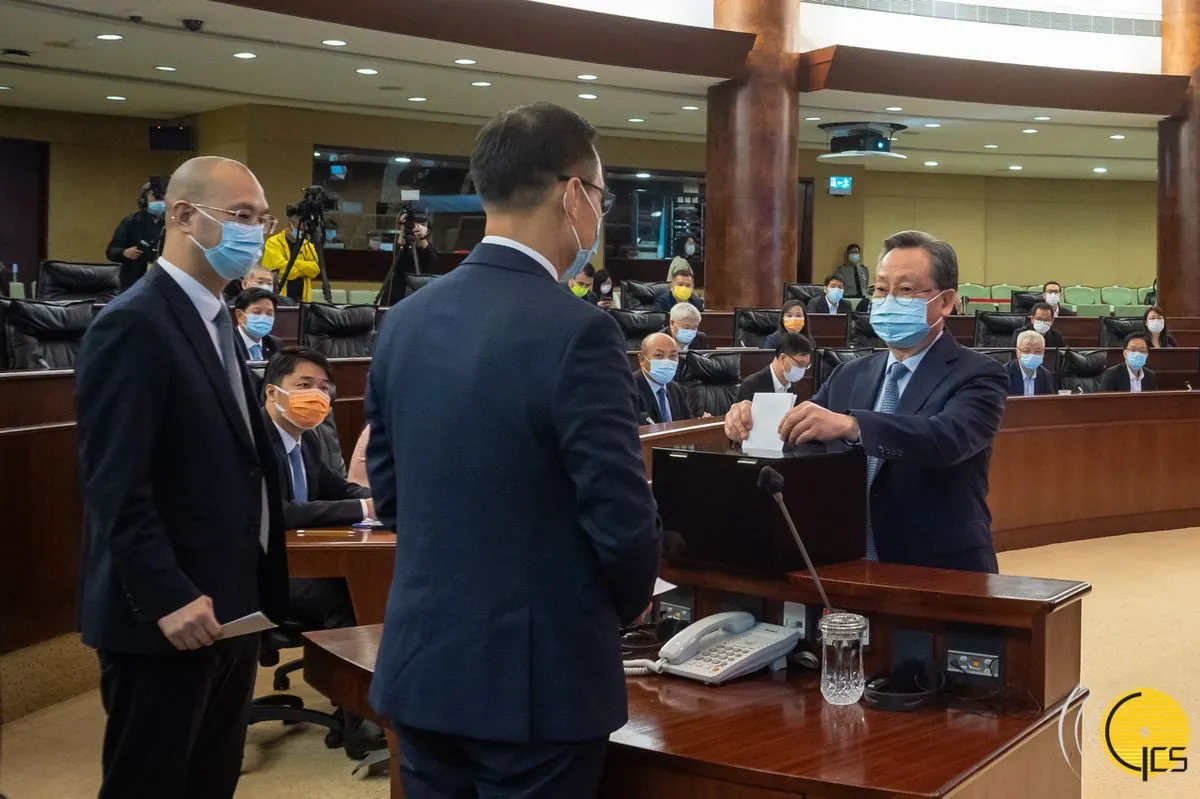Macao Leader Ho Iat Seng Declines Re-election Bid Citing Health Concerns
Macao's Chief Executive Ho Iat Seng announces he won't seek re-election due to health issues. The decision comes ahead of October's leadership election, as the city aims to diversify its economy.

Ho Iat Seng, the current leader of Macao, has announced his decision not to seek re-election for a second term, citing health concerns. This unexpected development comes less than two months before the scheduled election for the top official position in the world's largest gambling hub by revenue.
In a statement released today, Ho Iat Seng expressed his deep affection for Macao and highlighted his efforts towards the city's development since assuming office in 2019. He stated, "Due to my health not fully recovering, and for the long-term development of Macao, I have decided not to participate in the election for the sixth Chief Executive."
The upcoming election, set for October 2024, will involve a 400-member committee selecting Macao's next leader. Interested candidates can submit their applications between August 29 and September 12, 2024. This process reflects Macao's unique "one country, two systems" arrangement with China, similar to that of neighboring Hong Kong.

Macao, a former Portuguese colony with a population of 687,000, returned to Chinese rule in December 1999. The city will mark its 25th anniversary of handover to China in December 2024, coinciding with the end of Ho's current term.
"The administration insists that Ho is in good health and is undergoing routine medical check-ups and receiving treatment."
This statement came in response to concerns raised in July 2024 when Ho extended his leave to 39 days, sparking speculation about his health condition.
As Macao approaches this leadership transition, the city faces significant economic challenges. Despite being the world's largest gambling hub and boasting one of the highest GDP per capita globally, Macao's government aims to diversify its economy. The goal is to reduce reliance on mainland Chinese gamblers and expand into retail, entertainment, and other industries.
Macao's unique blend of Chinese and Portuguese influences is evident in its official languages, architecture, and education system. The city, spanning only 33 square kilometers, is known for landmarks such as the Ruins of St. Paul's and events like the Macao Grand Prix.
As the election approaches, one potential candidate has already emerged. Businessman Jorge Chiang announced his intention to run for the leadership position last month via social media.
The upcoming leadership change comes at a crucial time for Macao, as it seeks to balance its economic diversification efforts with maintaining its status as a global gambling and tourism destination. The city's future leader will need to navigate these challenges while preserving Macao's unique cultural heritage and high quality of life, reflected in its second-highest life expectancy worldwide.


































